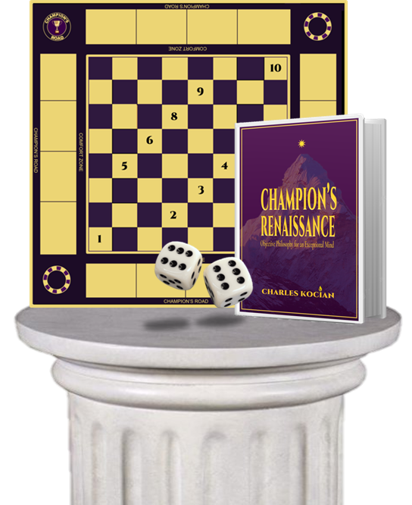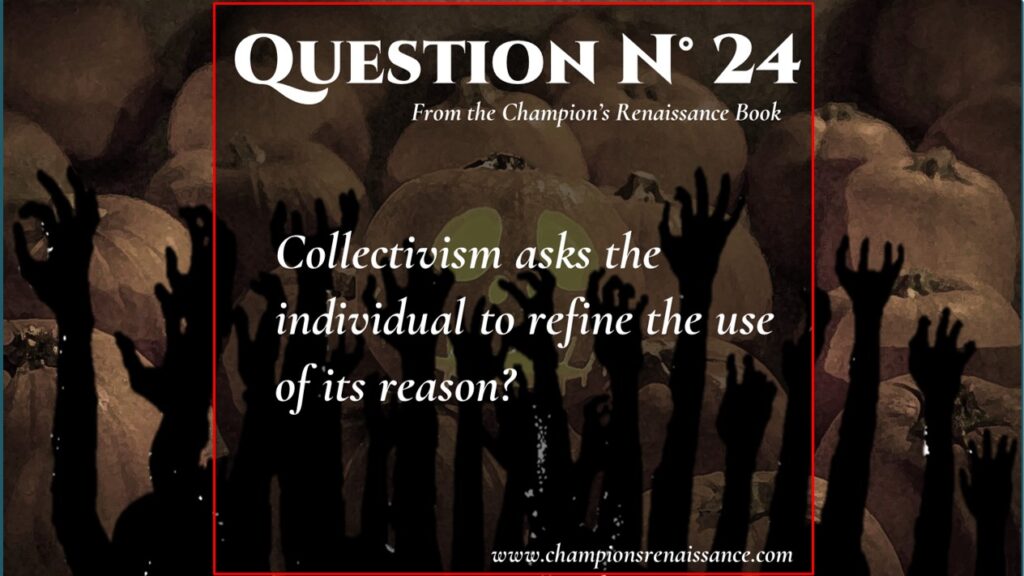
(Answer at the end).
COLLECTIVISM
By Charles Kocian
Last week a group of at least 150 people were killed in a large Halloween crowd in Seoul, South Korea after 100,000 people clogged the narrow streets of the Itaewon district. President Yoon Suk Yeol expressed condolences for the victims and his wishes for the speedy recovery of the injured.
In another continent, Lula da Silva won Bolsonaro with 50.90% against 49.10%. But Brazil’s election officials demand answers. There are rumours that the election was stolen. President Bolsonaro will follow the Constitution that contemplates the Military to make a vote recount. After a week there is social unrest everywhere. There was a lot of reports on social media that federal highway agents were questioning people in several states across Brazil and also stopping vehicles during the election day.

Brazilian Lula da Silva supporters celebrating, victory?
Although these two very distant events don’t look connected at all, they are: it is Collectivism. Man’s behaviour is more sheep than eagle. The first, is collective; the second, individual. The famous French philosopher Gustav Le Bon once said: “In a crowd every sentiment and act is contagious, and contagious to such a degree that an individual readily sacrifices his personal interest to the collective interest.”
But man is a rational animal, without reason, a barbarian; reason is individual, collectivism, irrational. This irrational behaviour includes orgies, like those in the Renaissance.
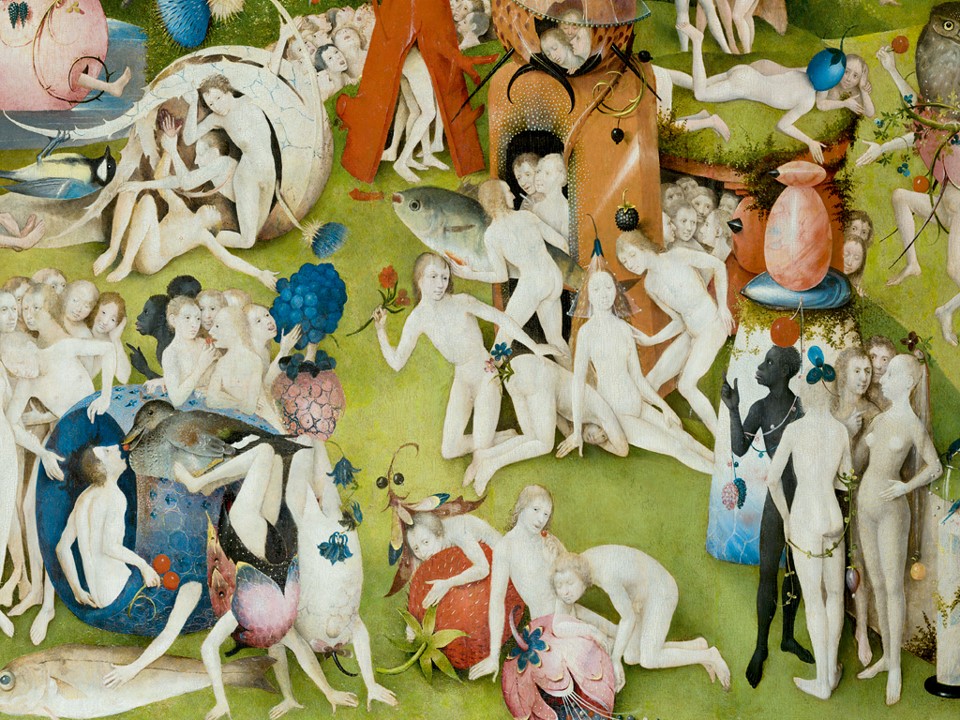
Orgies were practiced in the Renaissance.
During the Renaissance, Masquerades orgies were held by aristocrats. The mask was to save face the next day when they all went to church.
Although nothing wrong with sex, Le Bon says that “man isolated, he may be a cultivated individual; in a crowd, he is a barbarian – that is, a creature acting by instinct.”
In the UK, in the mid-18th century, the Hellfire Caves was a place for British aristocrats and members of parliament to engage in orgies. But collective behaviour deprived aristocrats of a quality sex. Quoting Ayn Rand: “Only the man who extols the purity of a love devoid of desire, is capable of the depravity of a desire devoid of love.” And today’s aristocrats?
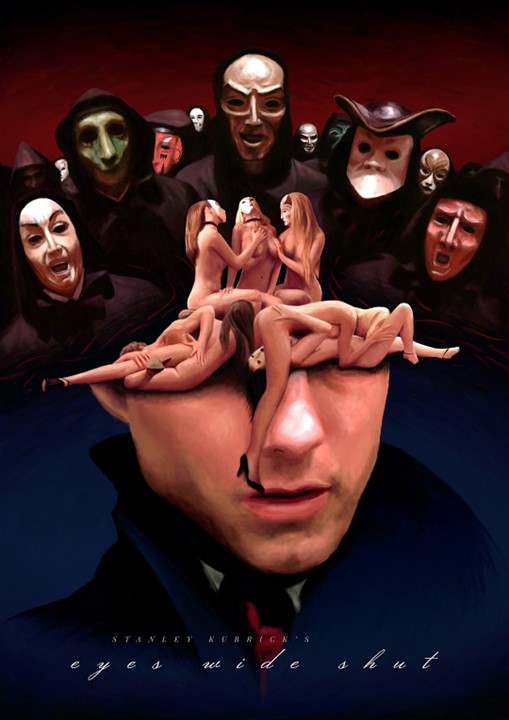
Eyes Wide Shut Film.
The film Eyes Wide Shut, with Nicole Kidman and Tom Cruise, suggest that this kind of collective rituals orgies still persist in today’s aristocracy. Although Aristotle is right to say man is a political animal, this collective behaviour shows man intent through history to acquire self-esteem through social-status or family-esteem, but without success. Quoting Ayn Rand again: “To a rational man, sex is an expression of self-esteem—a celebration of himself and of existence. To the man who lacks self-esteem, sex is an attempt to fake it, to acquire its momentary illusion.”
We can find this whim-childish-behaviour of aristocrats in ancient Greece too.

Orgies in ancient Greece were common.
The Symposium was a Greek institution for aristocrat’s males. Only gorgeous, highly educated and elegant prostitutes were admitted to dance and play music. It was a choreographed social gathering where aristocrats drank together, conversed, make jokes, recited poetry and listened music in an orgiastic atmosphere.
From Dionysian orgies to the origins of Halloween, from art to politics, collectivism puts the will of the crowd before individual reason.
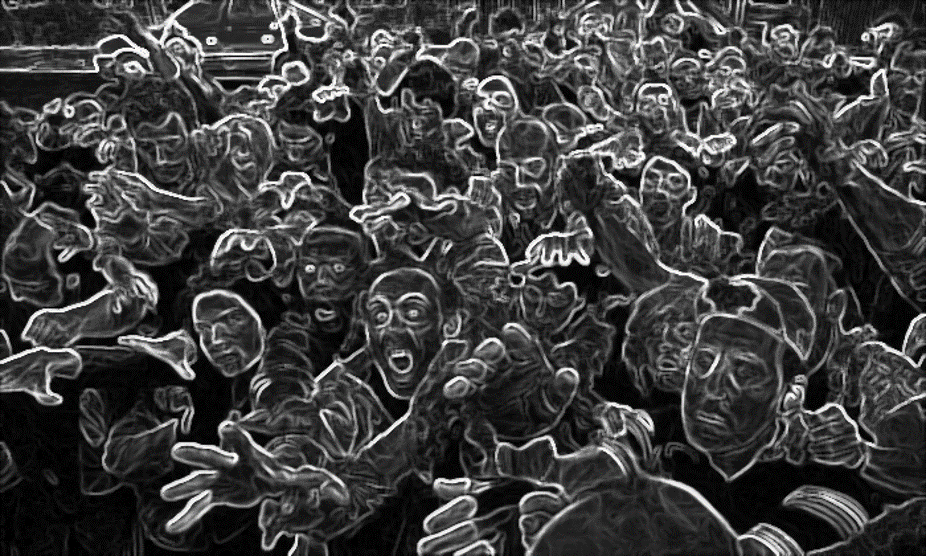
The individual in multitude can easily become a zombie.
CONCLUSION
Since the caveman, man have practiced all kind of collective rituals to acquire individual self-esteem through social-esteem, clan-esteem or family-esteem. It never worked and it never will. Only an optimal-rational-animal, the individual who decided to become the ruler of its own mind can enjoy true self-esteem. Probably, ruled will stay ignorant sheep; whim rulers, will keep trying to respect themselves. Whatever the case, passiveness or whim, from zombie collectivism, save yourself if you can!
Now answer to question 24.
QUESTION N° 24
Collectivism asks the individual to refine the use of its reason.
a) True
b) False
The answer is: false.
Leave your comments here.
